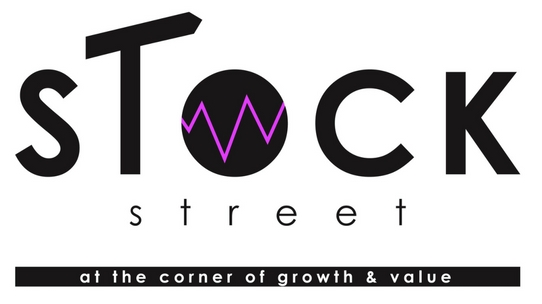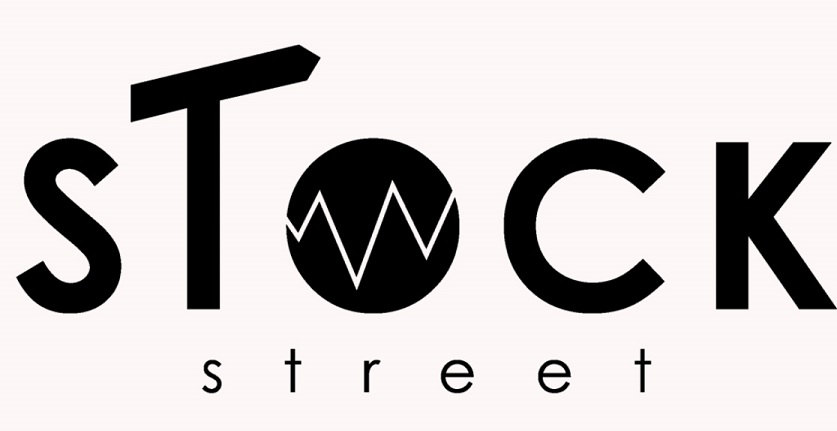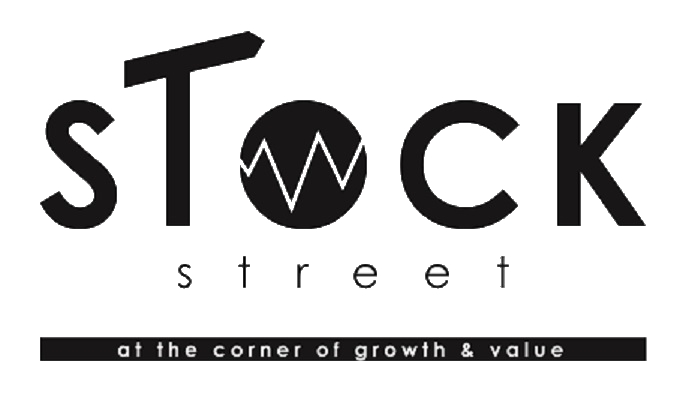Recently I’ve read multiple articles discussing the stock market and the economy. Some of the articles I read reference the stock market being an indicator of the economy. They say the stock market is up over 15%, therefore the economy is doing great.
I get frustrated when I read things like this, because no one should say the phrase, “We know the stock market is doing great, because the economy is doing great.” It is a terrible idea to look at the stock market, and then infer a great economy due to that stock market. This is also true in reverse; you shouldn’t infer a bullish stock market due to a great economy. I know, this sounds contrary to your current perspective of the relationship between the economy and stock market. Trust me, my viewpoint of investing and the economy was just like yours once upon a time.
The thing is, so many people seem to think the stock market and the economy are in some sort of serious long-term relationship. Look, the stock market is not the economy’s Topanga. The economy is not the stock market’s Kelly Kapawski. They aren’t Ross and Rachel, they aren’t Marshall and Lilly. If anything, they are Jerry and Elaine; they get together sometimes throughout the years, but they are by no means “going steady”.

I’m going to lay down some knowledge right here, right now. Here are some historical arguments why you shouldn’t link the economy to the stock market as well as some wise words on the subject from two titans of investing.
Black Monday 1987
Let’s go back in time, old school stylz. The year was 1987. The S&P 500 opened the first trading day of the year, January 2, 1987, at 246.45. Almost eight months later, on August 25, 1987, the S&P 500 hits a record high of 336.77. And there you were, it was 4pm on August 25, 1987, and you were yelling from your office window, “Hot-damn that’s what I’m talking about!” “I’m rich!”
Then, you slowly walked across your office and closed your office door because this gem just came on the radio. (It was sitting at number 4 on the Billboard Hot 100 at the time)
You are just so happy, you are rocking out in your office, the market just hit a record high. And you just keep thinking you are a god of investing, you are immortal, you are a certified genius with your 36% gain. And the economy is doing so great that nothing can stop you.
Then, the number 3 song on the hot 100 starts playing, Nothing’s Gonna Stop Us Now.
Now you are singing directly to the stock market at the top of your lungs. You are so happy, you are just so in love with the stock market. You are serenading it, singing, “I’m so glad I found you, I’m not gonna leave you…people say were crazy, what do they know, put your arms around me baby don’t ever let go…And we can build this dream together, standing strong forever, nothings gonna stop us now.”
But……
Almost two months later, on October 19th, 1987, the sun goes down. You drive home, tears rolling down your cheeks. The stock market closed today at 224.84. You are down 33% since that high in August, and you are down almost 9% for the year.
As you merge onto the highway, this song comes on.
Take a look at this chart:
This doesn’t exactly look like the economy that should create a massive global selloff. There was no negative GDP growth. In fact, unemployment had been declining for 5 years up to that date, and it continued to decline after that date as well.
This is what the unemployment rate looked like leading up t0 1987, and then after the crash:

Source: Bureau of Labor and Statistics
Hmm, this doesn’t look like the unemployment figures during a recession, or any type of economic downturn. From 1982 – 1987 unemployment had been DECLINING. It declined from 1986-1987, and, this may be mind-boggling, but unemployment declined AFTER 1987. It declined until 1989!
Yet, again, there you were, October 19th, 1987, merging onto the highway after work, crying, singing – Didn’t We Almost Have it All – by Whitney Houston.
As we can see from this, there was no correlation between the stock market crash and the economy. There was no way to take the current economy and extrapolate a bullish stock market.
I say we remember this the next time we decide the economy is a wonderful indicator of the stock market.
The Infamous 2008
Let’s use everybody’s favorite year to make comparisons to: the infamous 2008. In 2008, on the first trading day of the year, January 2nd, the S&P 500 closed at 1,447.16. On May 19, 2008, the S&P 500 closed at 1,426.63.
Now think about this date. Here you are, May 19th, 2008, over four months into the year (about 140 days) and the market is ever-so-slightly down. If we use the stock market as an indicator of how the economy is doing, you may think the economy is a little slow, but you wouldn’t have much of a worry for a mere less than 1.5% decrease in the S&P 500. At a less than 1.5% decrease you are still probably driving down the street in your car blasting Pocket Full of Sunshine which had just come out.
Now, fast forward in time about 148 more days into the year. It’s October 7th, 2008, and the S&P 500 closes at 996.23. In 148 days, we went from 1,426.63 to 996.23, or a 30.17% decline. Once again, we are sitting here and now we finally are thinking about how the economy may not be as strong as we thought it was 148 days ago.
So now, on October 7, 2008, instead of Pocket Full of Sunshine you are sitting alone in your office with the lights off in a corner listening to Teardrops On My Guitar by Taylor Swift which was still on the airwaves at the time.
And those lyrics, where Taylor Swift is talking about some boy named, Drew, start morphing into some personal tragedy where you had this personal relationship with this stock market. You and this stock market were so close, you named it, Drew, and now all of a sudden those lyrics start to make a whole lot of sense as you are weeping alone in the dark in your office, “He’s the reason for the teardrops on my guitar”.
Damn you Drew! Damn you and your volatility!
The problem is that 148 days ago back in May 2008 the economy had problems; the stock market was just ignoring those problems. I know firsthand from my internship at a bank in New York City back in 2007. I sat next to the team who cleared mortgage-backed securities, and they were freaking out back then. The economy had problems as far back as 2006. Yet there you were, May 19th 2008, thinking everything is probably just fine.
Take a look at the unemployment during the time period.

Source: Bureau of Labor and Statistics
2008 started with an unemployment rate of 5.4%, but a year prior it had been 5%. By June the unemployment rate was 5.7%, a full point higher than the 4.7% it was in June 2007. So unemployment was starting to rise and there were other huge problems in the economy that should have given the stock market some giant red flags by this time, Eg. the entire housing industry.
In our 2008 scenario, we can see that the stock market did a terrible, horrible, awful, atrocious job predicting the economic outlook of the year 2008, or the following multiple years for that matter.
Listen to Buffett and Graham
Let’s take the late great Benjamin Graham’s quote about the stock market. You know, the same Benjamin Graham who mentored and taught Warren Buffett when he was at Columbia Business School. That one guy who is known as the Father of Value Investing.
This is a quote from Graham:
In the short run, the market is a voting machine, but in the long run it is a weighing machine.
So what does Graham mean by this? He is saying that the stock market operates on opinions over short-term periods of time, but it is precise over long periods of times. If this is to be true, we cannot associate a short-term gain in the stock market with a strong economy, or vice versa.
If Graham won’t sway your opinion on this one, maybe we should just go straight to the world’s greatest investor, Warren Buffett. Here is my transcription of a talk Buffett gave with Bill Gates at Columbia Business School (ironic that this is where Graham taught Buffett as well) where Buffett talks about the stock market related to the economy:
“I bought my first stock in 1942. I was 11 and I had been dilly dallying up until then, but I got serious {laughter}. What do you think the best year for the market has been since 1942? Best calendar year from 1942 to the present time? Well there’s no reason you’d know the answer. The answer is 1954. And in 1954 the Dow including dividends was up 50%. Now if you look at 1954, we were in a recession a good bit of that time. The recession started in July of ’53, unemployment peaked in September of ’54 so until November of ’54 you hadn’t seen an uptick in the unemployment figure and, and the unemployment figure more than doubled during that period. It was the best year there was for the market. So it’s a terrible mistake to look what’s going on in the economy today, and then buy and sell stocks based on that. You should decide whether to buy and sell stocks depending on how much you are getting for your money, long term value you are getting for your money at any given time. And next week doesn’t make any difference because next week the next week is going to be a week further away. The most important thing is to have the right long term outlook, evaluate the businesses you are buying, and then a terrible market or a terrible economy is your friend.”
Warren Buffett is a man I hold in the utmost regard. I find his advice to be the most rational out of any big time investor. I would also argue that he has more experience than any investor alive today; this is due to the fact that he has been in the industry so long and at such an elite level. So if I were you, I would listen to the man!
As we can see, in 1987, the economy never actually slowed down, yet the stock market performed terribly. In 2008, and even before 2008, there were indications of a weakening economy, yet there was not a large decline until later in 2008. In October 2008 there was a similar outcome to October 1987, yet with a weakening economy instead of a strengthening one. And then there was 1954, as Warren Buffett pointed out to us, the economy had its best year on record, and it was during a friggin’ recession.
Funny enough, I’m bullish on the stock market and the economy
You may not think so from reading this post, but I am quite positive about the outlook of our economy and the stock market. In fact, I have been happy with the state of the economy for a few years now; longer than most people I speak with. I know the stock market long-term will be higher; it may not be next month, or next year, but I know twelve years from now, fifteen years from now, the stock market will increase in value.
All I am trying to get through in this post, is you shouldn’t care about if the economy is positive, if the economy is negative, if the stock market is going up, down, or sideways, anytime soon. You should invest for the long-term.
So, in closing, don’t link a strong economy to a bull market, and don’t link a bull market to a strong economy. Invest for the long-term; it’s the only way not to get burned.
Ok, so who out there disagrees with me? Please state your reasons with facts 🙂
Photo Credit: Alan Light – Jerry Seinfeld and Julia Louis-Dreyfus
















Investing for the long-term is the best strategy, and the earlier a person starts to invest, the more time she’ll have to recoup any losses.
Thanks for reading, Leon! Those are some very true words. The earlier the better when it comes to compound interest. And I agree, the more time she invests, the better.